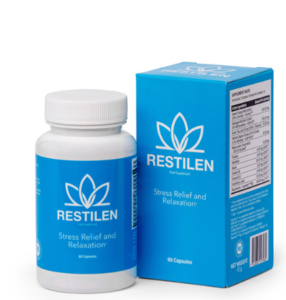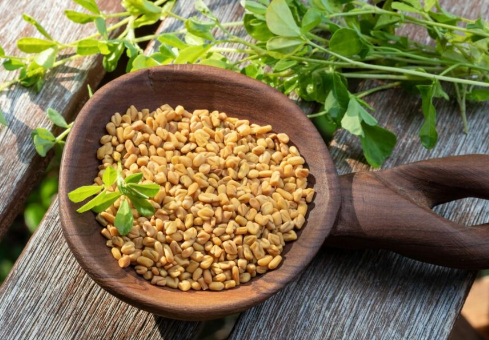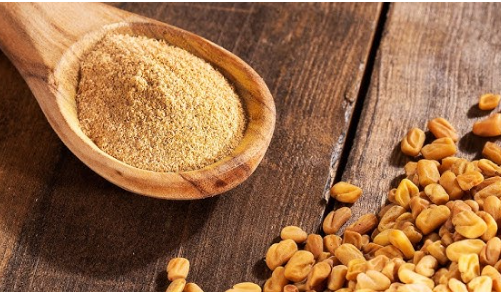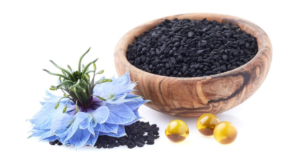Introduction
Fenugreek seeds are often celebrated for their numerous health benefits. While they have been used for centuries in traditional medicine, modern research supports their role in promoting health through a variety of essential nutrients. These tiny seeds pack a powerful nutritional punch, helping people improve digestion, manage blood sugar, and boost immunity. In this article, we will explore the top 10 nutrients in fenugreek seeds, how they benefit the body, and why they should be a staple in your diet.

Table of Contents
1. Protein
Fenugreek seeds are rich in protein, making them a great option for vegetarians and vegans looking to add more plant-based protein to their diets. Protein is essential for building and repairing tissues, producing enzymes and hormones, and supporting muscle growth.
Benefits:
Aids in muscle recovery and development.
Supports a healthy immune system.
Helps maintain skin, hair, and nails.

2. Fiber
One of the key components of fenugreek seeds is their high fiber content. Dietary fiber is crucial for maintaining digestive health, managing blood sugar levels, and reducing cholesterol.
Benefits:
Promotes healthy digestion and regular bowel movements.
Helps control blood sugar levels, particularly for those with diabetes.
Brings down cholesterol, decreasing the risk of heart disease.
3. Iron
Fenugreek seeds are a good source of iron, which is vital for producing red blood cells and preventing anemia. Iron is also essential for overall energy production.
Benefits:
Prevents anemia by supporting the development of hemoglobin.
Boosts energy levels and reduces fatigue.
Supports cognitive function and immunity.
4. Magnesium
Magnesium in fenugreek seeds plays a vital role in more than 300 enzymatic reactions in the body. It’s necessary for muscle function, blood pressure regulation, and overall heart health.

Benefits:
Regulates blood pressure and maintains heart rhythm.
Reduces inflammation and supports healthy nerve function.
Enhances bone strength and density.
5. Calcium
Fenugreek seeds are a natural source of calcium, which is essential for maintaining strong bones and teeth. Calcium also assumes a part in nerve transmission, muscle contraction, and blood clotting.
Benefits:
Strengthens bones and prevents osteoporosis.
Supports cardiovascular health by regulating blood clotting.
Facilitates muscle contraction and nerve signaling.
6. Potassium
Potassium is another important mineral found in fenugreek seeds. It helps regulate fluid balance, supports proper muscle and nerve function, and helps reduce blood pressure by countering the effects of sodium.
Benefits:
Lowers blood pressure by balancing sodium levels.
Supports cardiovascular health by reducing the risk of stroke.
Maintains fluid balance and prevents muscle cramps.

7. Vitamin A
Fenugreek seeds contain beta-carotene, which the body converts into vitamin A. This nutrient is fundamental for eye health, immune function, and skin health.
Benefits:
Supports healthy vision, particularly in low light.
Boosts immune function, diminishing the risk of contaminations.
Promotes skin health and diminishes indications of aging.
8. Vitamin C
Vitamin C is a powerful antioxidant present in fenugreek seeds that helps protect the body from oxidative stress and boosts immunity. It also plays a role in collagen production, which is essential for healthy skin and connective tissues.
Benefits:
Upgrades immune function and diminishes the seriousness of colds.
Promotes healthy skin by supporting collagen formation.
Protects cells from oxidative harm brought about by free radicals.
9. B-Vitamins
Fenugreek seeds are rich in several B-vitamins, including B1 (thiamine), B2 (riboflavin), B3 (niacin), and B6 (pyridoxine). These nutrients assume a critical part in energy creation, brain function, and the formation of red blood cells.

Benefits:
Supports energy levels by aiding convert food into energy.
Supports brain function and mood regulation.
Promotes healthy skin, hair, and eyes.
10. Phosphorus
Phosphorus is an essential mineral that works alongside calcium to strengthen bones and teeth. It also plays a role in energy production and the repair of tissues and cells.
Benefits:
Strengthens bones and teeth in combination with calcium.
Aids in energy production by supporting metabolism.
Helps repair cells and tissues, promoting overall growth and maintenance.
Conclusion
Fenugreek seeds are packed with essential nutrients that offer a wide range of health benefits, from supporting digestion and regulating blood sugar levels to boosting immune function and enhancing bone health. Incorporating these seeds into your daily diet can help you meet your nutritional needs naturally.
Frequently Asked Questions (FAQ’s)
Fenugreek seeds are rich in protein, fiber, iron, magnesium, calcium, potassium, vitamin A, vitamin C, B-vitamins, and phosphorus.
The high fiber content in fenugreek seeds helps promote regular bowel movements and improves overall digestive health.
Yes, the fiber and other compounds in fenugreek seeds help slow down sugar absorption, making them beneficial for people with diabetes.
Yes, fenugreek seeds contain nutrients like potassium and magnesium, which help regulate blood pressure and reduce cholesterol, supporting overall heart health.
Fenugreek seeds are rich in antioxidants like vitamin A and vitamin C, which protect the skin from damage and promote collagen production for healthy skin.
The fiber in fenugreek seeds helps increase satiety, which may reduce overall calorie intake and support weight loss efforts.
While fenugreek seeds are generally safe, pregnant women should consult a healthcare professional before consuming large amounts due to potential effects on uterine contractions.
You can use fenugreek seeds in teas, soups, curries, or even sprout them to add to salads and sandwiches.
Yes, the antioxidants and anti-inflammatory compounds in fenugreek seeds can help reduce inflammation in the body.
It’s generally recommended to consume 1–2 teaspoons of fenugreek seeds per day. However, it’s best to consult a healthcare provider for personalized advice.
Explore My Recent Articles

10 Proven Benefits of Bananas for Health and Well-being
Bananas are known for their natural sweetness, ease of peeling and rich nutrition. This makes them one of the most commonly consumed fruits in the world. Though bananas originated in Southeast Asia, they are now

Disease X: The Next Pandemic?
Emerging infectious diseases pose one of the greatest threats to human health and global stability. One of them, “Disease X” has intrigued scientists and WHO, as it represents the potential for an unknown disease to

The Remarkable Benefits of Eating Acorn Squash in Winter
Acorn squash has all the qualities that make it special. Winter calls for warmth, comfort, and nutrition, and acorn squash provides all of these. This vegetable is not just delicious but also has a lot

Omega-3 Fatty Acids
Omega-3 fatty acids play a very important role in the nutrients needed to maintain overall health. As people are getting to know about it, its popularity is increasing day-by-day. These fats play a very important

